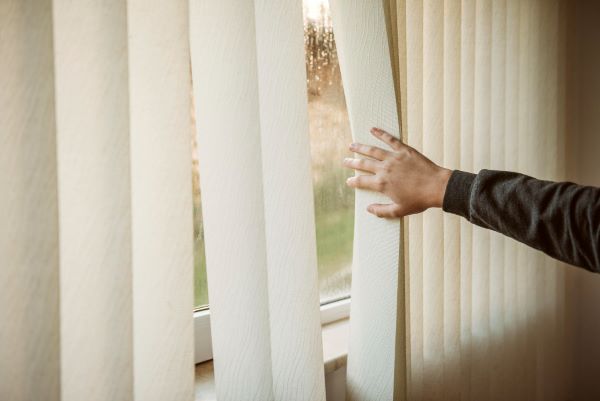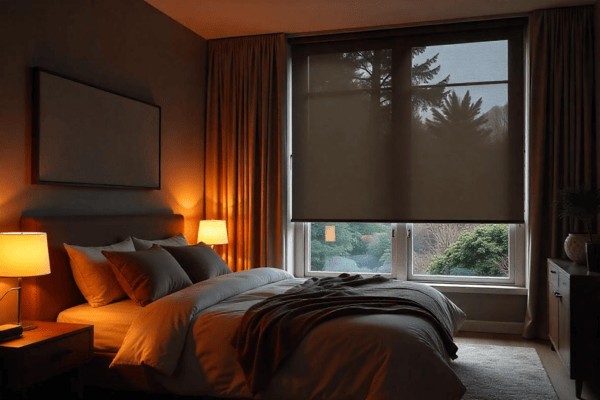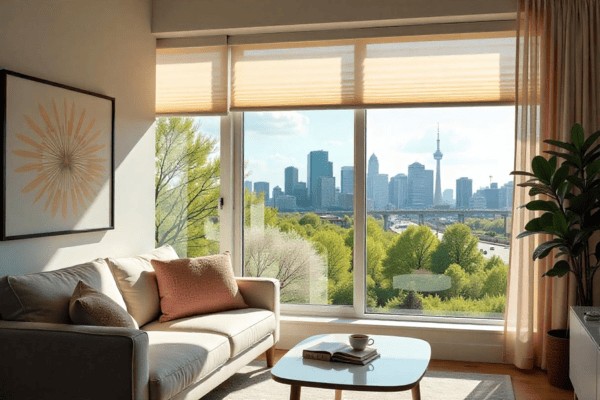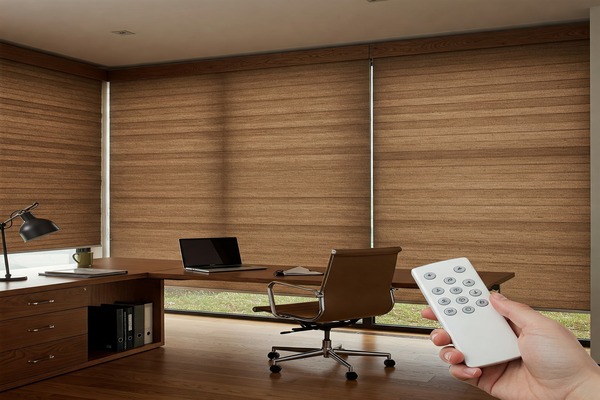
Breathe Fresh With Hypoallergenic Window Treatments!
A breath-full of fresh air is what all allergy sufferers wish for! They know the struggle of dealing with constant sneezing, itchy eyes, and respiratory discomfort triggered by allergens, — one heck of a trouble! But, when the nuisance is inside our comfort wall - our homes, it is more twingeing. A style-tricky yet safe solution to safeguard your home atmosphere is hypoallergenic window treatments.
Little may you know, allergens or debris can also bug your space through careless window coverings. Here’s an easy plan for you to create a healthier living space with hypoallergenic window treatments.
6 Best Hypoallergenic Window Treatments for Allergy Sufferers
If you are allergic to dust, dust mites, pet dander, or pollen, the below-listed coverings can be your best shot to beat the dust.
1. Roller Shades with Anti-Allergen Fabrics
As it is a no-fuss covering with a flat surface, the nesting of common allergens is troubled. Roller shades offer a sleek and minimalistic window treatment option.
Choosing roller shades with anti-allergen fabrics will significantly benefit allergy sufferers. These fabrics are specifically designed to resist the growth of mold, mildew, and dust mites. Moreover, roller shades are easy to clean, as they can be wiped down with a damp cloth or even removed and laundered.
2. Waterproof Vertical Blinds
The vertical sliding structure is prowess at allergy prevention. It does not allow dust to accumulate on its surface. Hence, the inside air remains less infected and also it is easily cleanable. Just wipe the waterproof shade with a wet cloth or simply vacuum – your breath is eased.
3. Honeycomb Blinds
You will get to hear tons of tittle-tattle. The air pockets are prone to dust collection— it is difficult to clean, and whatnot! Do you buy that? The dual fabric gives extra filtering of airborne particles. The air pockets trap the filtered air, providing you with better insulation to inhale.
Talking about cleaning, how is it possible not to suck out dirt by vacuum? Rather, you can do deep cleaning of cellular blinds with a vacuum cleaner - inside out.
Typical synthetic materials like polyester or non-woven polyester fibers are resistant to allergen buildup.
4. Faux Wood Blinds
Faux wood blinds are a popular and stylish window treatment option that can also be hypoallergenic. While traditional wooden blinds may harbor allergens, faux wood blinds made of synthetic materials such as vinyl or PVC are an excellent alternative.
They are resistant to moisture and do not attract dust or allergens. Regular dusting or wiping with a damp cloth can keep them clean and save you from allergic trouble. Also faux wood blind gives an antique appeal to your room’s aesthetic.
5. Motorized Blinds with Smart Sensor
Motorized shades might seem like a luxury, but they can be a significant advantage for you if you have allergy issues. When equipped with smart sensors, motorized shades can automatically adjust based on indoor air quality. These sensors can detect allergen levels and pollen counts, prompting the shades to close during peak allergy seasons or when outdoor air quality is poor.
By keeping the windows covered during high pollen days, allergy sufferers can significantly reduce the amount of allergens entering their homes. Moreover, motorized shades eliminate the need for manual operation, reducing the chances of allergen transfer from hands to surfaces
6. Plantation shutters
It offers both elegance and functionality while providing a hypoallergenic solution for allergy sufferers. Made of wood or synthetic materials, such as PVC or composite, plantation shutters are easy to clean and maintain. They have a solid construction, minimizing the accumulation of dust and allergens. Regular dusting or wiping with a damp cloth can help keep plantation shutters allergen-free.
Window Treatments that are Prone to Allergy
1. Drape
Thick or thin, cloth attracts dirt the most. Try avoiding drapery for your own good. The in-between pleats catch and preserve the allergens most.
2. Mini Blinds
The small slats are hard to clean. Which is why you should avoid them.
3. Wooden Blinds
Woods are prone to catch dirt, debris, pollen, and other allergens in the spring season. It takes a lot of work to maintain regular cleaning. Also, there is a high probability of attracting fungi during monsoon. Hence, try not to opt for such wooden blinds. A safe alternative to this window treatment is faux wood blinds.
Blinds Call!
Choosing the right window treatment is crucial if your loved ones are allergic. The widest exposure to allergic nuisance in your interior is windows. Though they provide great ventilation, they are also the Broadway for grime. Hence, it becomes your responsibility to create a safe and allergen-free living space, by availing the best hypoallergenic window treatment.
Additionally, regular cleaning and maintenance are a must to ensure a healthier indoor environment for every individual; and there is no bunking in it.
I hope the five mentioned hypoallergenic window treatment eases your search. Connect with us for a greater collection customized according to your need. Have a safe living!
FAQs
a) Which is better, Curtains or Clothes?
Blinds are made of hard materials and often come in waterproof fabric. This makes it most preferred by allergy sufferers.
b) Can window treatments really help reduce allergies?
Yes, selecting hypoallergenic window treatments can minimize allergen exposure, improve indoor air quality, and ease allergy symptoms.
c) Are there motorized window treatments with allergy-preventing features?
Yes, some motorized shades are equipped with allergen control fabrics or coatings, actively repelling allergens and promoting an allergy-friendly environment.
d) Are blackout curtains suitable for allergy sufferers?
Blackout curtains can be hypoallergenic if made from anti-allergen fabrics, but some may accumulate pollen or dirt. Check the material and clean it regularly.
e) Which curtain fabric is best for allergy prevention?
Fabrics that are washable regularly to remove allergens can be a good choice. Such as pure cotton.




